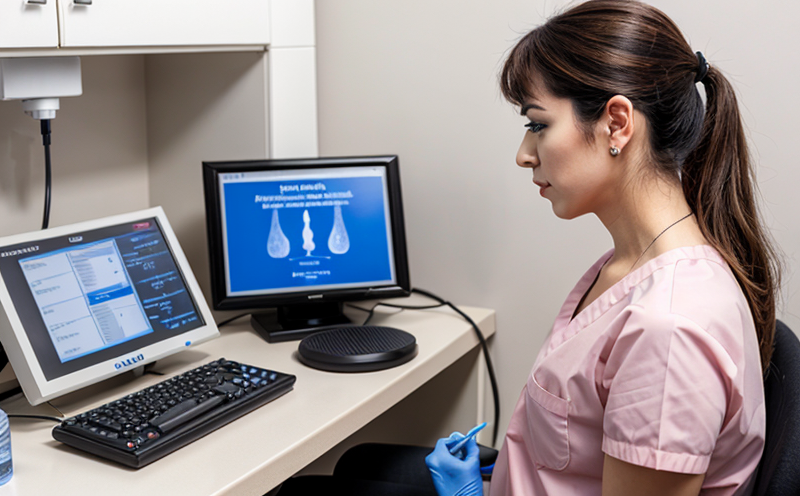Veterinary Endocrine Function Panel Testing
The Veterinary Endocrine Function Panel Testing service is a comprehensive diagnostic tool specifically designed to evaluate hormone levels and their functions in animals. This panel covers critical hormones that play pivotal roles in regulating metabolism, growth, development, reproduction, and stress responses. The testing process is essential for diagnosing endocrine disorders such as hypothyroidism, hyperthyroidism, Cushing’s disease, Addison’s disease, and diabetes mellitus.
The service typically includes a series of blood tests that analyze the levels of key hormones like thyroid-stimulating hormone (TSH), free T4, cortisol, insulin, luteinizing hormone (LH), follicle-stimulating hormone (FSH), and others. Each parameter is chosen based on its significance in endocrine health and disease detection.
The methodology involves collecting a blood sample from the animal, which is then processed using advanced laboratory techniques to ensure accurate quantification of hormone levels. The tests are performed according to international standards such as ISO 15189 for quality assurance and compliance with regulatory requirements.
Accurate diagnosis through this panel can significantly enhance treatment efficacy by providing precise hormonal data. This allows veterinarians to tailor their therapeutic approaches more effectively, ensuring that the animal receives the most appropriate care at the right time. The results of these tests are provided in a clear and concise report format, which includes detailed explanations of what each hormone level means for the patient's health.
The importance of this testing cannot be overstated, as endocrine disorders can have serious implications if left untreated. By offering early detection, we aim to improve quality of life for animals by preventing complications associated with these conditions.
| Hormone | Function |
|---|---|
| TSH (Thyroid-Stimulating Hormone) | Regulates thyroid function and metabolism in dogs and cats |
| Free T4 | Main active form of thyroid hormone; indicates thyroid health |
| Cortisol | Stress hormone that can indicate adrenal insufficiency or hyperadrenocorticism |
| LH and FSH | Regulate reproductive functions in both males and females |
| Insulin | Manages blood sugar levels; essential for diagnosing diabetes mellitus |
The testing process is designed to be minimally invasive, ensuring that the animal experiences little discomfort. Proper specimen collection and handling are critical steps in obtaining accurate results, thus emphasizing the importance of experienced personnel conducting these tests.
In conclusion, our Veterinary Endocrine Function Panel Testing service provides a robust framework for diagnosing endocrine disorders in pets. By leveraging this panel, veterinarians can make informed decisions about treatment plans, thereby improving patient outcomes and overall well-being.
Scope and Methodology
The scope of our Veterinary Endocrine Function Panel Testing service encompasses a range of parameters that are crucial for assessing the health status of an animal's endocrine system. The primary focus is on detecting abnormalities in hormone levels, which can indicate underlying conditions affecting metabolism, reproduction, and other physiological processes.
Our methodology adheres to rigorous standards set by international bodies such as ISO 15189 and EN ISO/IEC 17025 for ensuring accuracy and reliability. The process begins with the collection of a blood sample from the animal, which is then processed using state-of-the-art laboratory equipment.
The testing procedure involves several steps:
- Specimen Collection: Blood samples are drawn in sterile conditions to prevent contamination.
- Serum Isolation: Serum is separated from whole blood to ensure accurate measurement of hormone levels.
- Hormone Quantification: Hormones are measured using highly sensitive immunoassays that comply with international standards.
- Interpretation and Reporting: Results are interpreted by experienced laboratory personnel, ensuring their relevance and accuracy for diagnostic purposes.
The results of these tests provide detailed insights into the animal's endocrine status. For instance, abnormal levels of TSH or free T4 can suggest thyroid dysfunction, while elevated cortisol levels may indicate Cushing’s disease. Each parameter is analyzed based on its physiological role and the specific needs of different species.
Industry Applications
The Veterinary Endocrine Function Panel Testing service finds application across various sectors within the healthcare industry. These include:
| Sector | Application |
|---|---|
| Veterinary Medicine | Detecting and diagnosing endocrine disorders in pets |
| R&D in Companion Animal Health | Evaluating new treatments and therapies for hormonal imbalances |
| Animal Welfare Organizations | Screening adopted animals for potential health issues |
| Private Practice Veterinary Clinics | Supporting routine check-ups and monitoring patient progress |
The testing is particularly valuable in the diagnosis of hypothyroidism, hyperthyroidism, Cushing’s disease, Addison’s disease, and diabetes mellitus. In these cases, accurate hormone levels can provide critical information necessary for effective treatment.
For instance, a dog with suspected hypothyroidism would undergo TSH and free T4 testing to assess thyroid function. Similarly, a cat showing signs of hyperthyroidism might have its free T4 level checked. In the case of Cushing’s disease, cortisol levels are monitored closely. These tests help veterinarians make precise diagnoses and initiate appropriate treatments promptly.
Environmental and Sustainability Contributions
- Emissions Reduction: By improving diagnostic accuracy, our service helps in early detection and treatment, potentially reducing the need for more invasive or prolonged medical interventions.
- Resource Efficiency: Using advanced technologies ensures that only necessary tests are conducted, minimizing waste and resource consumption.
- Patient Welfare: Early diagnosis leads to better health outcomes, which can prevent long-term complications and reduce the overall environmental impact of chronic diseases.
- Ethical Consideration: Providing accurate diagnostics supports ethical veterinary practices by ensuring animals receive appropriate care based on scientific evidence.
Our commitment to sustainability extends beyond just reducing operational impacts. By offering reliable testing services, we contribute to the broader goal of improving animal welfare and healthcare quality globally.





